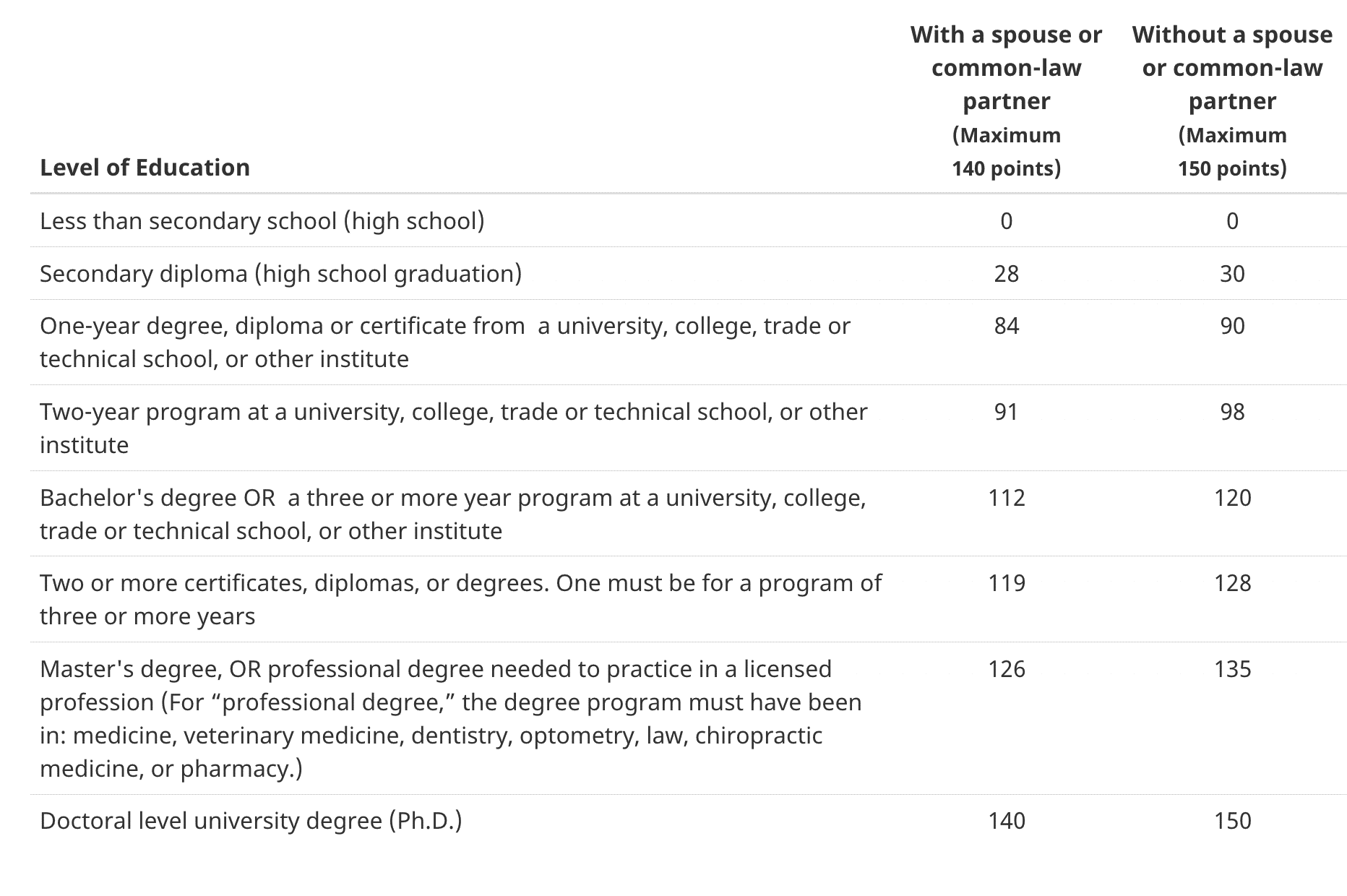20th August 2024
Four Provinces Offer Financial Incentives to Attract Skilled Immigrants in Healthcare!
Read MorePublish Date: 16/02/2024
Having a spouse or common-law partner in your immigration application can impact your Comprehensive Ranking System (CRS) score, with both positive and negative effects.
Here's a breakdown of how the presence of a significant other can influence your CRS score:
Age: Having an accompanying spouse or common-law partner may negatively impact your score for age. Applicants with an accompanying significant other can earn a maximum of 100 points, while those with a non-accompanying spouse can earn 110 points.
Level of Education: The level of education of your spouse or common-law partner can affect your score. Applicants with an accompanying spouse or common-law partner can earn a maximum of 140 points, whereas those with a non-accompanying spouse can earn 150 points.
Official Language Ability: Language proficiency in English and French is crucial. Having an accompanying significant other may reduce your score, with a maximum of 32 points per language skill for applicants with a spouse and 34 points for those without.
Canadian Work Experience: Similar to education, the Canadian work experience of an accompanying spouse can impact your score. Applicants with an accompanying spouse can earn a maximum of 70 points, while those without can earn 80 points.
Spouse's Level of Education: You can receive a maximum of 10 points based on your accompanying spouse's level of education, compensating for the potential reduction in points in Category A.
Spouse's Official Language Ability: An additional 20 points are available for your spouse's language ability, considering only the first language. This compensates for the fact that the second language is not assessed for accompanying spouses.
Spouse's Canadian Work Experience: An extra 10 points are awarded for your spouse's Canadian work experience, balancing the point allocation between those with accompanying and non-accompanying spouses.
The Bottom Line:
Note: If your spouse or partner is already a Canadian citizen or permanent resident, you will earn points as if you don't have an accompanying spouse or partner. In such cases, spousal sponsorship may be an option.
![]() India: +91 9650116699
India: +91 9650116699
![]() Canada: +1 647 641 0944
Canada: +1 647 641 0944
![]() Australia: +61 415 383 393
Australia: +61 415 383 393







